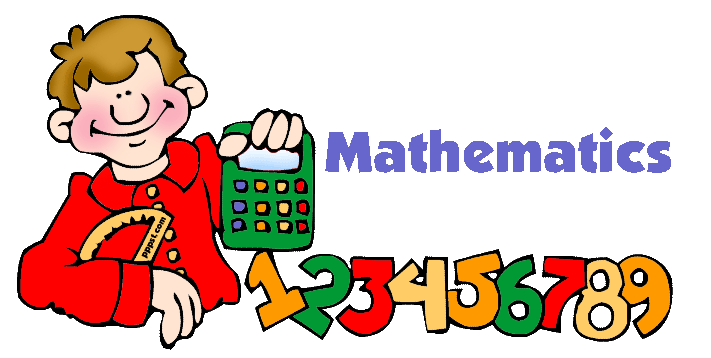Mathematics at St. Patrick’s
At St Patrick’s Catholic Primary School, our aim is to deliver the curriculum for Mathematics through promoting a growth mindset – where ‘Everyone Can do Mathematics’. This is at the very heart of our teaching, to develop the children’s mathematical skills and understanding.
As the 2014 National Curriculum for Mathematics aims to ensure that all children:
- Become fluent in the fundamentals of Mathematics
- Are able to reason mathematically
- Can solve problems by applying their Mathematics
Therefore, we focus on embedding these skills through the core teaching within Mathematics lessons, which are developed over time through effective and consistent teaching. We are committed to ensuring that children can recognise the importance of Mathematics in the wider world and can use their acquired skills and understanding confidently in their lives through a range of different contexts. We want all children to enjoy Mathematics and for them to experience success and progress within the subject. We are committed to developing children’s’ curiosity, promoting resilient learners with an appreciation of the beauty, power and mathematical reasoning.
Early Years Foundation Stage (EYFS)
In EYFS the children follow the programme of study for the Foundation stage, laid out in the EYFS Framework. Mathematics involves providing children with opportunities to develop and improve their skills in counting, understanding and using numbers; calculating simple addition and subtraction problems; and to describe shape, spaces and measures.
What does Mathematics look like at St. Patrick’s?
The content and principles underpinning the 2014 National Mathematics curriculum and the Mathematics teaching at St Patrick’s reflect those found in high-performing education systems internationally, particularly those of east and south-east Asian countries, such as; Singapore, Japan, South Korea and China. These principles and features characterise this approach and convey how our curriculum is implemented:
- Teachers reinforce an expectation that all children can achieve high standards in Mathematics.
- Most children progress through content at the same pace.
- Problem solving, fluency and relational understanding are at the heart of the learning, allowing children to apply their skills.
- The use of the Concrete Pictorial Abstract (CPA) approach and allows children to spend enough time to fully explore a topic, reinforcing understanding with practice, before moving onto the next phase of learning.
- All ideas are built upon previous understanding and mathematical knowledge.
- Children have ample opportunity to develop relationships between topics.
To ensure consistency and progression, we teach Mathematics using the White Rose Mathematics scheme, an approach to teaching Mathematics which allows the children to develop and support learning in all areas of the curriculum.
New concepts are often explored through an initial related problem, where children can discuss in partners or small groups possible strategies using prior knowledge. This initial problem-solving activity prompts discussion, reasoning and develops the children’s curiosity to engage in the Mathematics lessons.
Differentiation is achieved by emphasising deep knowledge and through individual support and intervention.
- Teaching is underpinned by methodical curriculum design and supported by carefully crafted lessons and resources to foster deep conceptual and procedural knowledge.
- Practise and consolidation play a central role. Carefully designed variation within this builds fluency and understanding of underlying mathematical concepts.
- Teachers use precise questioning in class to test conceptual and procedural knowledge and assess children regularly to identify those requiring intervention, so that all children keep up.
Teachers use careful questions to draw out children’s thoughts through discussion and allow them to share their reasoning. The class teacher then leads children through the strategies needed to solve the problem, including those already discussed.
Independent work provides the means for all children to develop their fluency further and demonstrate their understanding. Afterwards children progress to more complex and advanced problems.
Mathematical topics are taught in blocks to promote the teaching of ‘mastery’ over time. Each lesson phase provides the opportunity for learners to achieve greater depth, where children who demonstrate fundamental understanding are offered more challenging and sophisticated problems. Learners are set exploratory and investigative tasks within lessons where appropriate to promote resilient and independent thinking. All children are set problem solving and reasoning tasks to ensure they can demonstrate a core depth of understanding before being moved onto the next topic.
Times Tables
We use Times Tables Rockstars as a tool to help pupils develop fluency in multiplication tables. This can be accessed at home as well as at school. Please speak to your class teacher for your child’s login.
What do we achieve in Mathematics at St. Patrick’s?
The school fosters and nurtures a supportive ethos as summed up by our motto, ‘May Christ be seen in us.’ Our approaches help the children in developing their collaborative and independent skills, as well as empathy and the need to recognise the achievement of others. We continually aim to develop a growth mindset through praise and support, to ensure every child uses the positive attitude ”Everyone Can do Mathematics’. Regular and ongoing assessment informs teaching, as well as intervention, to support and enable the success of each and every child. This enables that we can maintain high standards, with attainment well above that of the national average. The children at St. Patrick’s receive excellent Mathematical teaching, promoting development in fluency, problem solving and reasoning skills and understand Mathematics at a deeper level.
National Curriculum for Maths
Maths Overviews
Maths Policies
Maths Progression Document
